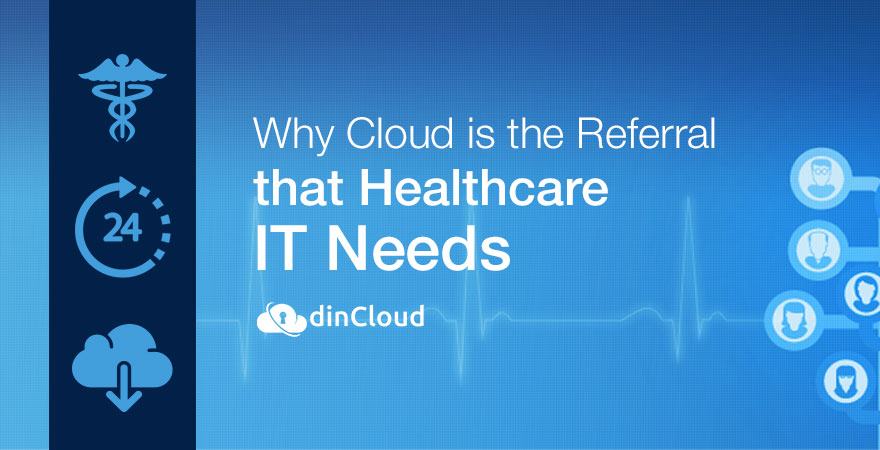There’s no shortage of complexity in healthcare IT. Between security concerns, industry regulations, large volumes of data, and the high stakes, a major shift in the way IT is administered can’t be taken lightly. However, with HIPAA proving burdensome for many healthcare organizations, along with the complexity of patient data and confidentiality concerns, the cloud, and the many benefits it offers, can help provide some relief. As a result, more healthcare organizations are weighing cloud-based options; however, in their evaluations, many providers are coming up short. The standard cloud model just can’t accommodate healthcare organizations and their complex requirements.

To this point, healthcare knows a thing or two about specialists. Just like you would send a MRI to a radiologist, the average cloud provider wouldn’t be able to address healthcare organizations the way a cloud provider who specializes in healthcare would. The next step is to determine what to look for in order to determine which providers are best suited for healthcare deployments.
HIPAA Compliance Support
While seemingly obvious, identifying a vendor that helps achieve HIPAA compliance is non-negotiable. Typically, providers can supply security documentation that should indicate if their security posture measures up to industry standards. Look for features like two-factor authentication, encryption, redundancy, and automatic failover.
24/7 Support for Your Cloud Environment
Because of the critical, and inherently time-sensitive, nature of healthcare operations, IT is on-call around the clock to prevent downtime, which could have grave implications. Can’t imagine facing an outage only to find that you either need to upgrade to a more robust package or that 24×7 support is not available? Neither can we. Given the urgency, it’s critical that your cloud provider shares the same commitment to issue resolution and will be a true partner in getting your issues resolved, whenever they may occur. See our support page here.
Cloud Backups
Though providers should take all the available precautions to prevent downtime and data loss, it’s also a best practice to have recovery systems in place in case such an event does take place. Cloud backups can help restore accidentally deleted files or roll back to an earlier backup in the event of a technical issue. For instance, dinCloud offers offer a hyper-converged infrastructure that includes 1 daily backup that’s stored for 10 days.
It’s always best to get a custom assessment to see how a provider can meet your organization’s unique requirements. If you want to learn more in the interim, see our healthcare page.


